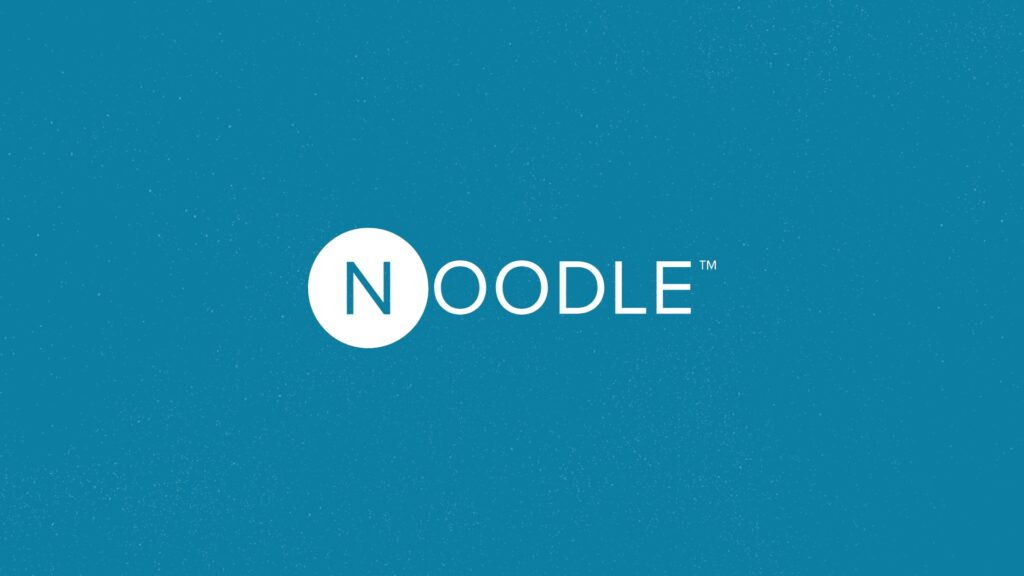To honor Black History Month this February, Noodle is celebrating a number of our Black colleagues in a series of “Profiles in Diversity.” We are incredibly grateful to our colleagues who have shared their stories with us here. We hope they inspire you like they inspire us.
Stephen Green leads us in Noodle’s mission to lower the cost of education, enrich our culture, and catalyze change in higher education. Chief Program Officer Stephen Green oversees all of Noodle’s 20+ university partnerships and 50+ online programs in the core functions of online program management, and is committed to improving the intersection of access, education, and technology. Green is a member of the National Alliance of Black School Educators and the National Council on Educating Black Children. He also sits on the boards of Bright Star Schools, a Los Angeles based Charter School Network, and UThink PC, a build-your-own computer company.
Meet Chief Program Officer Stephen Green
“I support the success of my team by empowering their continued success.”
What elements or traits does a great leader exhibit? In other words, what makes a leader great?
One thing that comes to mind is the element of making sure that your team feels entirely supported by you, and the level of trust that comes from that support. Leadership is less about being the expert who knows everything beyond reproach, and more about leading teams whose members each have their own strengths and are empowered to use those strengths. On my team, I’ve used a “foxhole” as a metaphor for how to work through and manage our complex and challenging business – doing something in higher education no other company has ever done, so we are establishing the blueprint while we grow the company. If you’re in a foxhole, you’re in a difficult situation. The only way to get out of that situation is to look to the person on your left and the person on your right and know that they’re fighting and swinging as hard as you are to get out of that situation together. That shared commitment is all about trust.
When you think of great leadership, who comes to mind? Why?
I was blessed that my father was a school district leader for many years, so I have always had a great role model in the field of education. I’ve also been working closely with John (Katzman) since 2005 at all three of his companies, so he certainly comes to mind. The strands connecting the leadership of those two is a commitment to excellence, empowering smart people around you, and supporting them at every turn, remarkably similar in my mind to college and professional team coaches. Mike Tomlin from the Pittsburgh Steelers and the way he communicates and builds trust with his players is someone I’ve always thought leads well. That trust-building element in leadership – that “We’re all in this together” feeling – is critically important.
How has your personal leadership style evolved over time?
One of the things I’ve grown into is to have confidence both in my team and in my ability to help prepare them for decisions and actions. As a manager of teams in my early twenties, I look back and realize that my management style was less about a lack of confidence in my team, but more about my lack of confidence in how I had prepared them. That reflection and evolution on style is important and ongoing.
What is it about your background or career experiences that successfully positioned you for your role at Noodle?
My entire family has been in education. My father, my mother and my brother have all been teachers and district administrators, so the value of education and the commitment to work on improving it has been impressed upon me my whole life. I’ve also been fortunate to be at companies that have been forward leaning and continually looking to evolve education and how it can be more accessible and better for everyone, students, teachers, faculty, etc.
How do you build momentum as a leader among diverse stakeholders at Noodle?
I think it all comes back to that trust-building dynamic. If you take that foxhole mentality, there are people on many teams that have indirect reporting lines to our teams. At any given moment, they know that I’m in it with them, and at whatever level we need to engage in, we do it. They know the door’s always open – What do we need to do? Let’s do it together!
How do you support the success of your team?
I support the success of my team by empowering their continued success. I also don’t take any credit for any of the things that I contribute to the team effort. I make sure that the team is put forward as the reason for the success, no matter how I am involved.
Describe how your career has been enhanced by exposure to diverse people, places, or experiences.
The thing about diversity, and why it’s so important, is that if you assume that no one person has all the answers, diversity enables people to look at the same situation through their own individual lens. Having a team that comes together from different perspectives to engage on what the path should be enables you to avoid being monolithic. People make mistakes all the time, but the more diverse the people around the decision table are (and thus, the more diverse their experiences are), the more likely you are to find creative and successful solutions.
What are some of the most effective tools in your leadership arsenal?
My biggest tool kit component is the ability to dive in at a 500-foot level or jump up to a 50,000-foot level based on whatever the operational or strategic need is. I was an English major in college and what that teaches you to do is look at both overall thematic elements as well as the smaller details of expression at the same time. Another helpful part of my toolkit is that I generally communicate well, so I can listen, and adapt to the flow of any discussion as needed, and I think that’s helpful in a wide range of situations.
Please tell us something about yourself that people would be surprised to learn.
Although I am personable, in many business situations I can be somewhat intense. So, a lot of people are surprised to learn that I grew up in the Midwest (Indiana, as a matter of fact) where everything is slower and feels gentler, because my intensity seems to better correlate to New York City or a similar urban setting. But being able to have a personable demeanor with that intensity is all about having grown up in Indiana.



